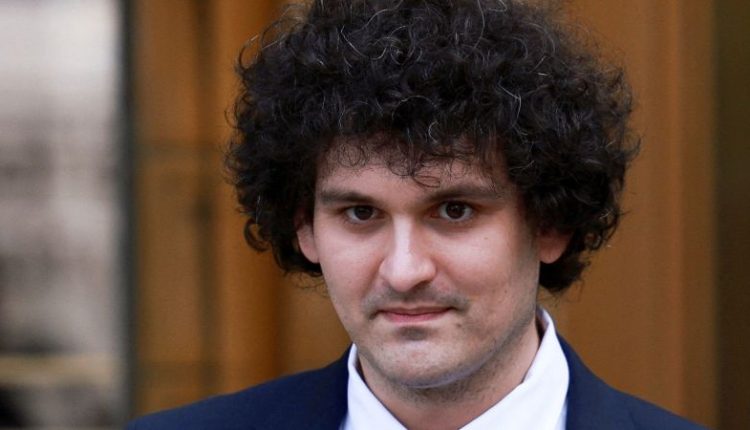The trial of Sam Bankman-Fried, a onetime crypto billionaire who stands accused of orchestrating a multibillion-dollar fraud, is set to kick off in federal court in Manhattan on Tuesday.
Jury selection was expected to take up most of the first day, with opening arguments to follow later in the week.
Over the next several weeks, lawyers will argue two dueling narratives about how FTX, Bankman-Fried’s now-bankrupt crypto platform, came unglued and left thousands of customers in limbo, with their deposits frozen.
The 31-year-old Bankman-Fried, known as SBF, has pleaded not guilty to seven counts of fraud and conspiracy in connection with the collapse of FTX — a seismic event from which the entire crypto industry is still reeling.
SBF has maintained his innocence since his arrest last December and has sought to shift blame toward other players in his business empire, including FTX’s lawyers as well as his former business partner and on-and-off ex-girlfriend, Caroline Ellison.
Prosecutors have cast SBF as a Bernie Madoff-like mastermind who stole from FTX’s customers and lied to investors in a yearslong scheme to enrich himself and his associates with luxury real estate splurges and more than $100 million in US political donations.
Here are the key things to know about the case, and what we might see over the next several weeks at the trial.
SBF faces seven counts, including wire fraud and securities fraud.
Prosecutors alleged that SBF stole billions of dollars from FTX customer funds for his own personal use and to cover huge losses incurred by Alameda Research, a crypto hedge fund he also controlled.
They also say SBF defrauded investors in FTX by covering up the scheme.
Prosecutors opted in June to sever five other charges that were brought after Bankman-Fried’s extradition from the Bahamas, where FTX was based. A separate trial is scheduled to begin on those charges in March.
FTX marketed itself as an easy, safe portal into cryptocurrency trading. It made money by collecting fees on customers’ trades, much like a typical brokerage.
As digital asset valuations shot up in 2021, so did FTX’s profile. At its peak, the company fetched a private valuation of more than $30 billion. It plastered its name across a Miami basketball arena and won celebrity endorsements from Tom Brady and Larry David, both of whom starred in Super Bowl ads for FTX.
But crypto market turmoil took root in the spring of 2022, gutting the entire industry’s value down to $1 trillion from $3 trillion.
By November, cracks in FTX’s foundation were beginning to show, and it took just over a week for it all to come crashing down.
Investors and customers began to panic in response to a report from crypto news site Coindesk that raised serious questions about the financial links between FTX and Alameda, two ostensibly separate businesses founded by Bankman-Fried. Based on a document obtained by Coindesk, it appeared that much of Alameda’s assets consisted of FTT, a digital token created by FTX that was rapidly losing value, putting Alameda on shaky financial footing.
Customers rushed to withdraw their funds from FTX, exposing an $8 billion shortfall.
FTX filed for bankruptcy on November 11, and Bankman-Fried resigned as CEO.
He was arrested in December in the Bahamas on charges including fraud and conspiracy and extradited to the United States in January.
Since his arrest, SBF has repeatedly spoken and written about his view of the case: He was an inexperienced businessman who got out over his skis, and he never knowingly committed fraud.
His lawyers have hinted in court documents that they will invoke an “advice of counsel” defense. In other words, SBF didn’t know that his actions were illegal and he was following guidance from FTX’s lawyers.
In personal writings by Bankman-Fried published by the New York Times, he put the blame for Alameda’s losses on its CEO, Ellison, who is now 28.
Ellison, along with three other former high-level associates, has pleaded guilty in cooperation with prosecutors.
“SBF’s biggest challenge is going to be that his former colleagues are going to testify against him,” said Howard Fischer, a partner with Moses Singer and a former senior trial lawyer at the Securities and Exchange Commission. On top of that, FTX’s new management, led by a restructuring expert who oversaw the liquidation of Enron, have been openly hostile toward Bankman-Fried.
“This kind of cooperation is a godsend for the prosecution,” said Fischer.
Another issue, Fischer said, is that SBF, in his long-winded blog posts, tweet threads, TV media appearances and alleged document leaks, “has consistently failed to demonstrate an awareness of how serious his situation is.”
“Juries tend not to like know-it-alls who lack respect for the process … While a defendant in a case like this is well advised not to take the stand, it is possible that SBF’s apparently unwavering self-confidence will lead him to take that risk.”
Jury selection begins on Tuesday, October 3, in Manhattan federal court. The trial is expected to last up to six weeks.
During that time SBF will remain in the Metropolitan Detention Center in Brooklyn, where he has been since Judge Lewis Kaplan revoked his bail on August 11 over SBF’s efforts to intimidate witnesses.
If he’s found guilty of all seven criminal counts and is given the maximum sentence, SBF would face the prospect of 110 years in prison.
Read the full article here

